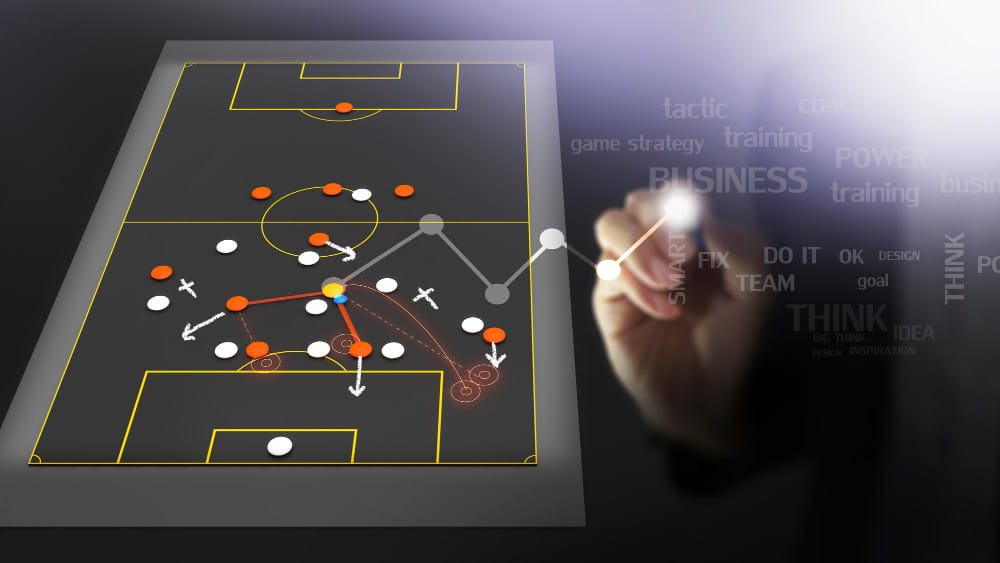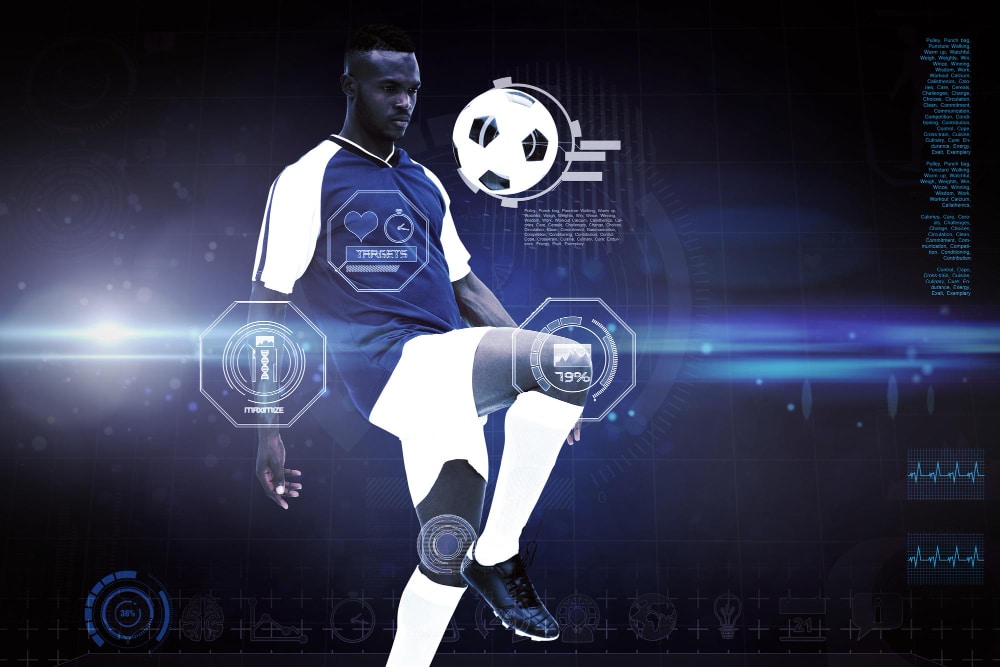Analyzing a soccer match is essential for coaches, analysts, journalists and fans who want to understand the game in more depth. A complete analysis goes beyond the basic statisticsinvolves observing details tactical, technical, physical and emotional that happen during the match. Below, we explain the key aspects you should consider in order to make a comprehensive analysis of a soccer match.
Analyze the tactical approach

One of the first aspects to observe in a soccer game is the tactical approach of the teams. This analysis should begin before the initial whistle, when the teams line up on the field.
Formations and game systems
Each team usually uses a specific formation, such as 4-3-3, 4-4-2 or 3-5-2, which defines its defensive and offensive structure. When analyzing a match, it is crucial to identify this formation and observe how the players respect or modify this structure during different moments of the game.
Some key questions you can ask yourself during the analysis are:
- Does the team deploy offensively or defensively?
- How do they react to the loss or recovery of the ball?
- Are transitions (attack to defense or vice versa) fast or slow?
For example, a team playing with a line of five defenders tends to be more defensive, prioritizing protecting its goal and attacking with quick counterattacks. On the other hand, a team with more midfielders may prefer to keep possession of the ball to control the pace of the match.
Pressure and counter-attack strategies
Another important point is to observe the pressureDoes the team press high to try to steal the ball in the opponent's half, or do they wait in their own half to form a more organized defense? Analyzing these strategies offers a clear view on the mentality and intentions of the teams in the match.
A team that uses counter-attacking will wait patiently to attack directly after winning the ball back, while other teams prefer to press high to keep their opponent under constant pressure in their own half.
Technical analysis of players

In addition to the tactical scheme, it is essential to carry out a individual technical analysis of the players. This analysis focuses on the technical skills they show during the game, such as ball control, passing, shooting, and decisions in pressure situations.
Quality of first touch and ball control
The first touch is fundamental in modern soccer, as it allows players to quickly control the ball and make decisions without wasting time. Players who have a good first touch can move better in tight spaces and execute plays with more precision.
Passing capacity
Passing is one of the most important skills for maintaining control of the game. It evaluates both the accuracy of short passes as the ability to perform long passes to change the focus of the attack. Players with excellent vision can make filtered passes to break through defensive lines.
Finalization and decision making
An analysis of the strikers should include their ability to end plays. This involves not only evaluating the quality of their shots on goal, but also their decision making Do they choose to shoot at the right time, or do they choose to pass to a teammate in a better position?
Evaluation of physical performance

The physical aspect of the players is also a determining factor in the development of a match. Here we evaluate their ability to keep movingthe racing speed and long, as well as their physical endurance in the final stretch of the game.
Distance coverage
In physical analysis, one of the key points is to observe the distance covered by players. Some players, especially midfielders, are responsible for covering large distances during the match, participating in both defensive and offensive actions.
Sprints and acceleration
The analysis of the sprints and fast runs allows to understand which players are able to break the rival defensive lines. In this sense, data analysis and GPS technology can be of great help to measure the speed and acceleration of players during the match.
Emotional and psychological analysis

The component emotional and psychological of a soccer match can greatly influence its outcome. During the analysis, it is important to identify how players handle pressure in difficult situations and how they manage their mentality throughout the match.
Pressure reactions
When a team is under pressure, either because it is losing or because the opponent is dominating, players tend to react in different ways. It is key to observe whether the team is disorganizes or if he stays calm and follows the coach's plan. Individual reactions can also play a role; some players thrive on adversity while others make mistakes out of anxiety.
Leadership and communication in the field
Leadership on the field is an essential factor for collective performance. A strong captain, capable of giving instructions to his teammates and encouraging them, can be the difference in critical situations. When analyzing the match, identify the players who take responsibility for leading and organizing the team, both in defense and attack.
Statistical analysis

Today, the statistical analysis and the use of technological tools have revolutionized soccer match analysis. Performance analysis platforms such as InStat U Opt provide detailed data to evaluate key metrics such as ball possession, chances created, and defensive efficiency.
Key indicators
Among the most important statistics you should keep in mind are:
- Ball possessionIndicates which team has dominated control of the game.
- Opportunities created and finishes: They evaluate how many scoring opportunities each team has generated.
- Defensive efficiency: Includes ball steals, clearances and blocks that help to keep a clean sheet.
Use of video analysis
The video analysis allows you to see repeated plays from different angles, which facilitates the detailed study of errors and successes. Through the video, it is possible to analyze tactical movements, defensive mismatches, and errors in decision making that might not be visible to the naked eye.
The future of match analysis

In recent years, the Artificial Intelligence (AI) has revolutionized the way a soccer match is analyzed. AI tools enable detailed, real-time analysis that goes beyond what the human eye can perceive. These technologies not only collect and process large volumes of data, but also interpret it to provide more accurate insights.
Real-time analysis and accuracy
Thanks to AI, it is possible to obtain advanced statistics such as goal probability, quality of passes and effectiveness of tactical formations in real time. This information helps coaches and analysts make strategic adjustments on the fly, something that previously could only be done after the fact with video analysis.
Pattern and trend detection
AI is also capable of detect patterns and trends that can be difficult to identify manually. By analyzing historical and current data, AI tools can predict player and team behaviors, making it possible to anticipate key moves in the match.
Performance optimization and injury prevention
In addition to analyzing the game, the AI is able to monitor the physical performance of the players, identifying possible injury risks before they occur. This is key to keeping players at their peak physical level throughout the season.

Want to take your soccer analysis to the next level?
At ENIGMIAWe offer artificial intelligence-based sports analytics solutions to optimize every detail of your matches. Get advanced insights in real time and improve your team's performance with state-of-the-art tools. Discover how our solutions can transform your approach to soccer!
How to integrate the analysis of a soccer match
To perform a complete analysis of a soccer match, it is essential to consider each of the aspects mentioned: tactical, technical, physical, emotional and statistical. In addition, the technological tools of analysis and video play a fundamental role in making detailed and accurate evaluations. The ultimate goal of the analysis is to obtain information that allows improving the performance of the players and the team, optimizing strategies and understanding the factors that determined the outcome of the match.





